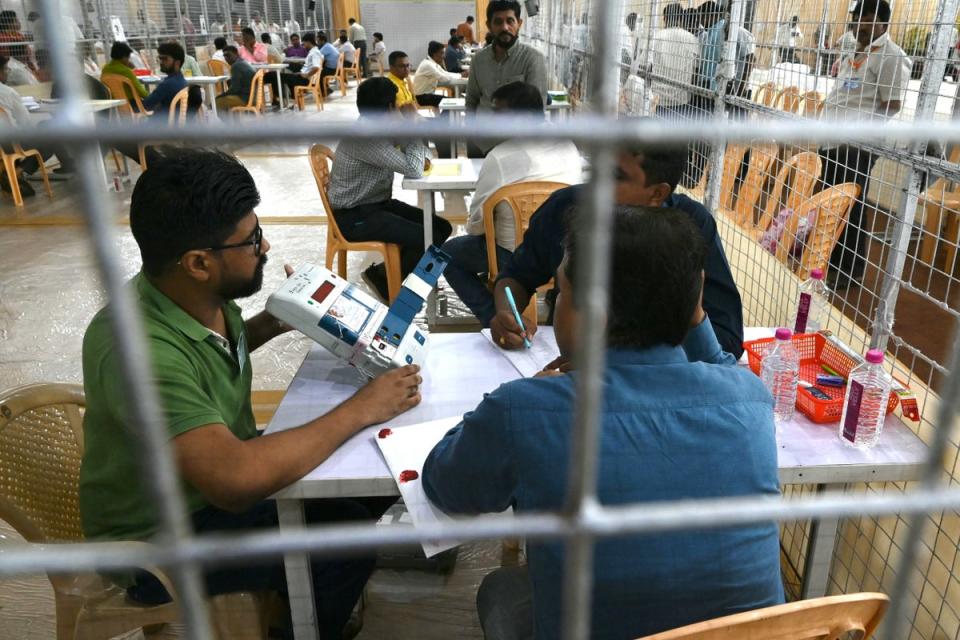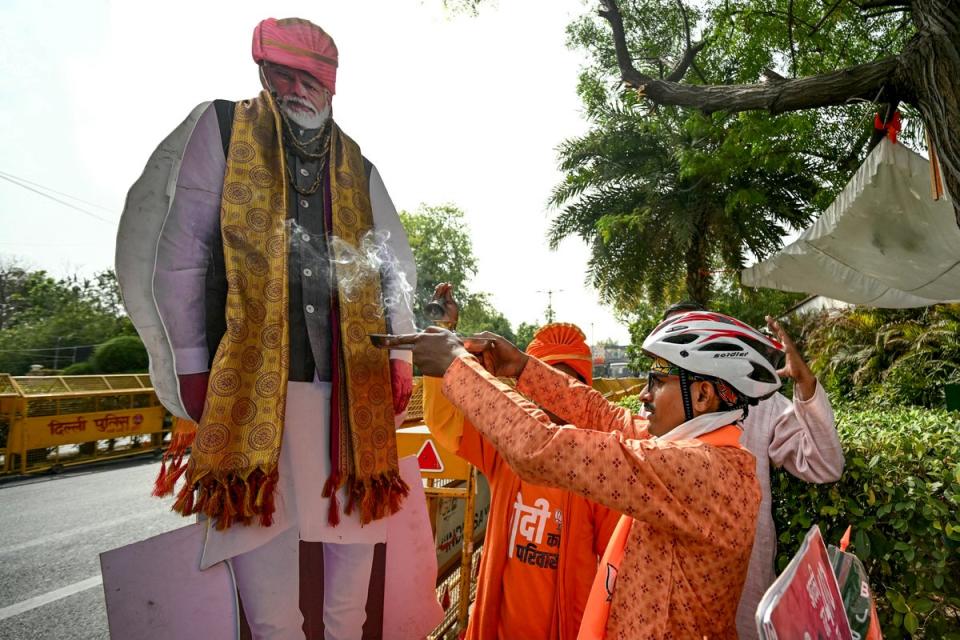India’s election watchdog ‘deliberately’ did not punish Modi for anti-Muslim speeches
The chief of India’s Election Commission has said that the watchdog made a “deliberate” decision not to punish top leaders of the two leading parties after prime minister Narendra Modi was accused of stoking anti-Muslim animus on the campaign trail.
Rajiv Kumar told the news website Scroll at a press conference on the eve of the counting of votes that they were non-discriminatory in their approach.
Mr Kumar said that they decided not to go after Mr Modi and his chief lieutenant Amit Shah from the ruling Bharatiya Janata Party (BJP) and Rahul Gandhi and Priyanka Gandhi Vadra from the primary opposition Congress party to keep it fair.
“We deliberately decided – this is such a huge nation – that the top two people in both the parties we did not touch. Both party presidents we touched equally,” Mr Kumar told Scroll. “Why did we leave two this side and two that side? The persons in position in this huge country also have responsibility. We reminded them of their responsibility.”
The commission is tasked with conducting free and fair elections in the country but its reputation as a neutral arbiter has taken a hit in recent years amid accusations of favouring Mr Modi’s ruling party, which, on its part, has made legislative changes to undermine the watchdog’s independence.
The 2024 national election, touted as the world’s largest with 968 million people registered to vote, was held over seven weeks starting 19 April.
Follow our live coverage of the results here.
Mr Modi, seeking a rare third term, is accused of making hate speeches against Muslims during the campaign.
In a speech that invited severe backlash, Mr Modi referred to Muslims as infiltrators and “those with more children”, a dog whistle that Hindu nationalists employ against the religious minority that counts for 14 per cent of the population.
He made the speech in western Rajasthan state’s Banswara on 21 April but, in an interview later, denied that it was discriminatory against Muslims.

In the wake of the speech, around 20,000 people, including opposition politicians and activists, wrote to the election commission seeking action against the prime minister.
Amnesty International said his speech “demonises the Muslim community” and puts them at “further risk of human rights violation”.
The commission responded by sending a notice to the president of BJP, asking him to ensure all star campaigners of the party “set high standards of political discourse and observe provisions of model code of conduct in letter and spirit”.
The directive did not name Mr Modi directly. This was a break from practice. In similar cases in the past the commission would send a notice to the accused politician rather than their party.
The directive didn’t deter Mr Modi. He alleged at subsequent rallies that the Congress party, if elected, would take wealth from Hindus and give it to Muslims.
Mr Kumar said the election commission did not notify Mr Modi directly because the courts rejected petitions demanding the watchdog act against him.
“Twice it went to court,” Mr Kumar said. “It is written in that order. Once to Delhi HC and once to SC. The thing which is judged…you cannot over and over say anything on that.”

The commission, meanwhile, said 642 million of the 968 million registered voters cast their ballots in this election.
Although the number is higher than in 2019, when about 612 million people voted, it accounts for a lower turnout than the 67.4 per cent recorded five years ago.
“We have created a world record of 642 million proud Indian voters,” Mr Kumar said. “It’s the highest ever number of voters in any electoral exercise in the world. It is 1.5 times the voters of all G7 countries.”
The election was held under an intense heatwave with mercury rising above 50C in north and northwestern regions. There were nearly 25,000 cases of suspected heat stroke and 56 people lost their lives after several heatwave days across the country between March and May, according to the government.
Mr Kumar acknowledged the election should have been finished a month earlier and said this was one of the lessons learned from the 2024 election.


